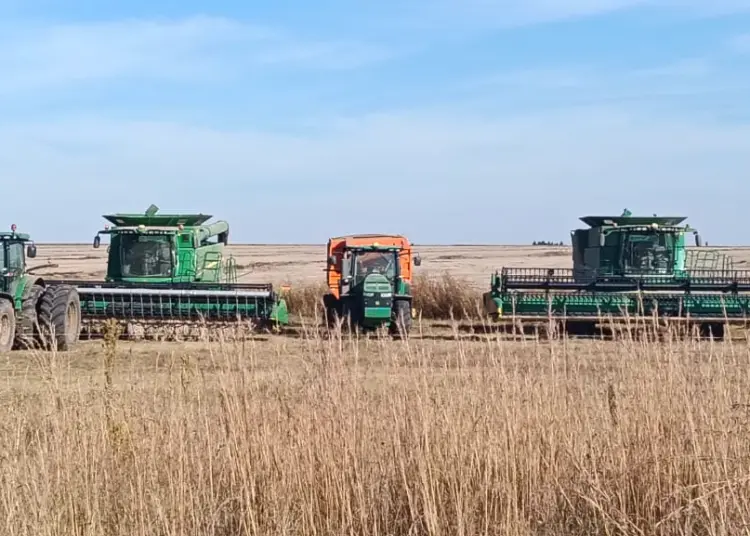Despite a good harvest in the fields, many soybean farmers were unable to harvest due to the wet conditions.
Amos Njoro, a farmer from Ya Rona Temo, produces maize and soybeans in the Vaal area of Vanderbijlpark, Gauteng, and sunflowers in Koster, near Rustenburg in the North West province. He said the wet conditions have significantly impacted his crops. While the maize is faring better, he is facing serious challenges with the other two crops.
“The wet conditions have affected us badly, as some of our crops are still in the fields, and we can’t access them. Some of our sunflowers are rotting due to excess water,” Njoro explained. He expressed concern that this situation will likely affect the quality of the produce they deliver to the silos. “We will only be able to assess the full extent of the damage once we finish harvesting,” he added.
Nkosana “Farmboy” Mtambo of Mtambo Boerdery at Vrede in the Free State said the 2025 harvesting season is proving to be the toughest in his 11-year career in crop farming. With over 1 100mm of rain in the eastern Free State, he finds they are falling behind schedule, particularly with the soybean, due to extremely wet fields. This situation may stem from the deep ripping they performed while preparing the land. “We ripped deep as a precaution, hoping to retain moisture for a longer period in case we didn’t receive enough rain,” Mtambo explained.
Currently, they have completed 60% of the harvesting but are working hard to finish the rest, as the soybean pods have started to crack and drop their seeds. The lack of proper machinery has led to frequent breakdowns, so they keep a spare tractor on hand to assist if the harvester gets stuck.
Despite these challenges, Mtambo shared some good news: The yield is promising, averaging about 1.5 tons per hectare. He believes that, under optimal rainfall conditions, they could have achieved around 2 tons per hectare. “The delays have made things difficult, but it looks like we might break even or even make a small profit from this harvest. However, some yield loss is likely due to seeds falling to the ground,” he added.
On a positive note, as a sheep farmer as well, he noted he might not need much supplementary feed for the sheep, as they can graze in these fields and benefit from the lost seeds. “This is one of the advantages of diversification,” he concluded.



